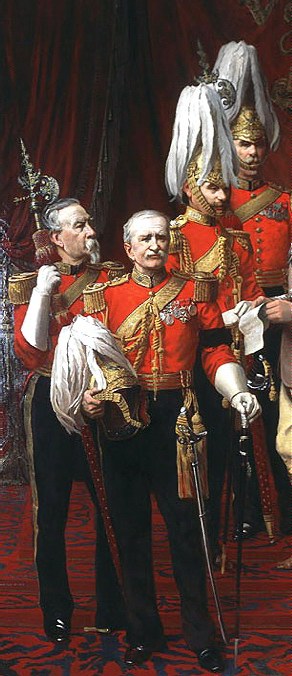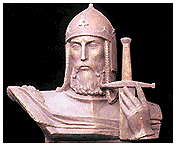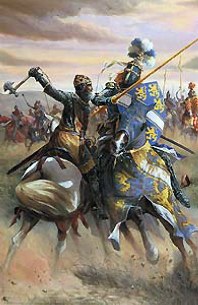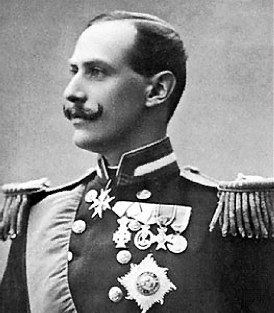The International Commission on Nobility and Royalty | home
General Philosophy & Practices
Fundamental or Basic Philosophy 

 (Note: If the pictures do not align up on the right side of the screen, please enlarge the print by going to "View" or "Page" and then "Text Size" and choosing a larger text. Or, narrow the screen in one of several ways till the pictures are all on the right side.) (Note: If the pictures do not align up on the right side of the screen, please enlarge the print by going to "View" or "Page" and then "Text Size" and choosing a larger text. Or, narrow the screen in one of several ways till the pictures are all on the right side.) |

It is recognized that the certification of titles and ancestry is a complicated business, confusion exists and experts occasionally disagree on what actually constitutes a legal and lawful title of nobility or royalty, and who should be considered noble or of royal blood. Two main philosophies stand out. The domestic legalistic view that would cancel out all rights to anyone not supported by a present or current government agency, and the international legalistic view which recognizes past rights as rightful and enduring perpetually according to the ancient laws that created them in the first place. The article entitled "Sovereignty & the Future of Nobility and Royalty" is an example of the traditional view. Modern international law supports this view. The domestic view would disenfranchise some of the most prominent and well respected houses of Europe--the Hapsburgs and the Prussians as well as some 60,000 other associated noble and royal families, because titles no longer have a legal existence in Germany and are outright illegal in Austria. The International Commission endorses and reflects traditional international view that wholeheartedly confirms ancient sovereign rights to be legitimate and of great worth and value to this and future generations. These assumptions are basic to everything the Commission stands for. They are bedrock beliefs. If you have not yet done so, it is recommended that you read the chapters on "Ideals" and "Sovereignty" to better understand what is at the root of the following views and policies in regard to certification.
General Practices
All decisions of the Accrediting or Certification Board will be reduced to writing showing the factual basis upon which the conclusions were drawn for each separate case. This and all the evidence submitted will be filed and preserved to perpetuity for the inspection of heirs and descendants as well as board members and will be audited on a yearly basis by a board approved inspector to assure accuracy and fairness, and that proper rules of evidence have been followed in every case.
Sound decisions based upon integrity, objectivity and adherence to high standards are the only way the Commission can maintain a high standing among the nations and a reputation that will assure the public that all decisions are fair and accurate. Hence, there is a great emphasis on certifying only those whose situations are supportable based upon objective facts. For this reason the Commission will maintain and protect its special right as a private organization to reject any petitions it considers to be unworthy of approval, or withdraw such approval, if a serious flaw is discovered in the claim of a certified member.
assure the public that all decisions are fair and accurate. Hence, there is a great emphasis on certifying only those whose situations are supportable based upon objective facts. For this reason the Commission will maintain and protect its special right as a private organization to reject any petitions it considers to be unworthy of approval, or withdraw such approval, if a serious flaw is discovered in the claim of a certified member.
Public controversy, however, does not constitute a valid reason for rejection or withdrawal. Facts mean everything. And every reasonable effort will be made to support, help and assist any individual involved in such a predicament to resolve it. But in the end, in all such cases, the cold hard facts must be accepted, ratified and approved.
Membership in the ranks of the nobility of the earth or the distinction of being a member of a royal family is highly exclusive. It is a recognized privilege that is inherited or officially conveyed by those who have legitimate royal or noble authority to do so. This kind of status cannot be built on any other foundation than the rock of reality. It cannot be make believe or fantasy. Otherwise, certification becomes meaningless and this organization would come to naught. Verified truth is the only standard we must and will follow in all cases no matter who is involved.
certification becomes meaningless and this organization would come to naught. Verified truth is the only standard we must and will follow in all cases no matter who is involved.
As stated elsewhere, any claim to a title having survived this process for ten years is considered permanent and no longer subject to controversy or cancellation.
 For contact information or to join the Commission as a contributor or apply for certification for titles, knighthood, status or ancestry, please first read the "Disclaimer and Obligatory Contract." If you fully agree with them, you are welcome to contact us, make contributions, answer our survey and/or become a part of this important cause. This required agreement is a good faith or goodwill gesture of sincerity, that can go a long way to ensure our continued existence and service to the cause of nobility and royalty. We need your support. There is so much that needs to be done. We invite you to contribute.
For contact information or to join the Commission as a contributor or apply for certification for titles, knighthood, status or ancestry, please first read the "Disclaimer and Obligatory Contract." If you fully agree with them, you are welcome to contact us, make contributions, answer our survey and/or become a part of this important cause. This required agreement is a good faith or goodwill gesture of sincerity, that can go a long way to ensure our continued existence and service to the cause of nobility and royalty. We need your support. There is so much that needs to be done. We invite you to contribute.
Please answer the seven questions on our "SURVEY" page and make a comment.
But, first, before you do so, please read either the article entitled "Ideals" or the one entitled "Advantages."
© Copyright 2005 - International Commission on Nobility and Royalty. All Rights Reserved.
 (Note: If the pictures do not align up on the right side of the screen, please enlarge the print by going to "View" or "Page" and then "Text Size" and choosing a larger text. Or, narrow the screen in one of several ways till the pictures are all on the right side.)
(Note: If the pictures do not align up on the right side of the screen, please enlarge the print by going to "View" or "Page" and then "Text Size" and choosing a larger text. Or, narrow the screen in one of several ways till the pictures are all on the right side.)
 assure the public that all decisions are fair and accurate. Hence, there is a great emphasis on certifying only those whose situations are supportable based upon objective facts. For this reason the Commission will maintain and protect its special right as a private organization to reject any petitions it considers to be unworthy of approval, or withdraw such approval, if a serious flaw is discovered in the claim of a certified member.
assure the public that all decisions are fair and accurate. Hence, there is a great emphasis on certifying only those whose situations are supportable based upon objective facts. For this reason the Commission will maintain and protect its special right as a private organization to reject any petitions it considers to be unworthy of approval, or withdraw such approval, if a serious flaw is discovered in the claim of a certified member.  certification becomes meaningless and this organization would come to naught. Verified truth is the only standard we must and will follow in all cases no matter who is involved.
certification becomes meaningless and this organization would come to naught. Verified truth is the only standard we must and will follow in all cases no matter who is involved.  For contact information or to join the Commission as a contributor or apply for certification for titles, knighthood, status or ancestry, please first read the "Disclaimer and Obligatory Contract." If you fully agree with them, you are welcome to contact us, make contributions, answer our survey and/or become a part of this important cause. This required agreement is a good faith or goodwill gesture of sincerity, that can go a long way to ensure our continued existence and service to the cause of nobility and royalty. We need your support. There is so much that needs to be done. We invite you to contribute.
For contact information or to join the Commission as a contributor or apply for certification for titles, knighthood, status or ancestry, please first read the "Disclaimer and Obligatory Contract." If you fully agree with them, you are welcome to contact us, make contributions, answer our survey and/or become a part of this important cause. This required agreement is a good faith or goodwill gesture of sincerity, that can go a long way to ensure our continued existence and service to the cause of nobility and royalty. We need your support. There is so much that needs to be done. We invite you to contribute.